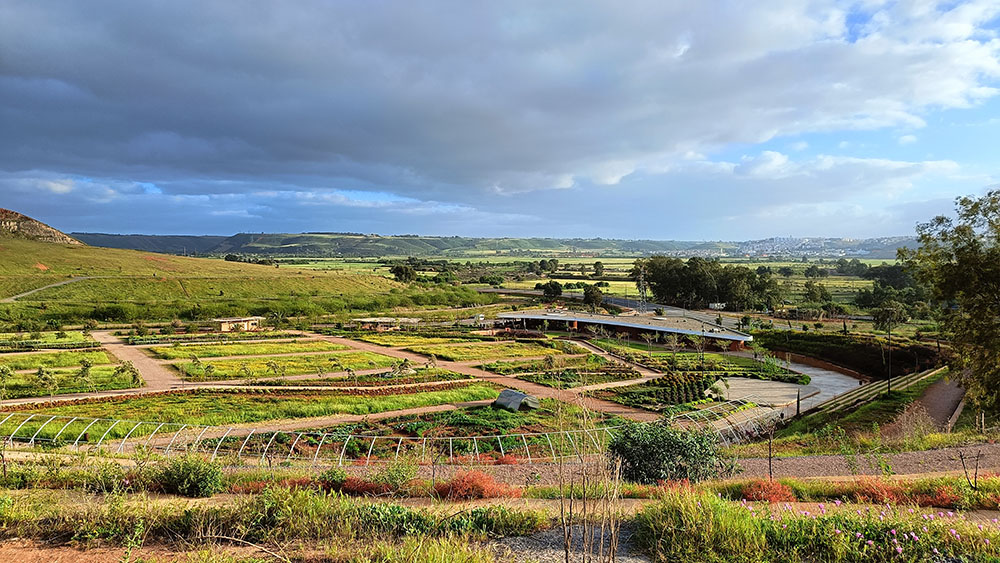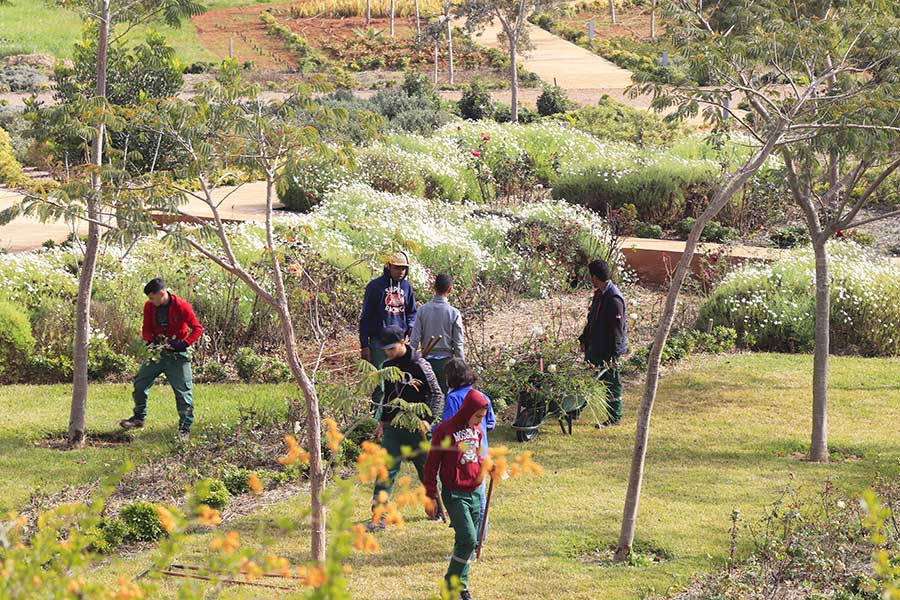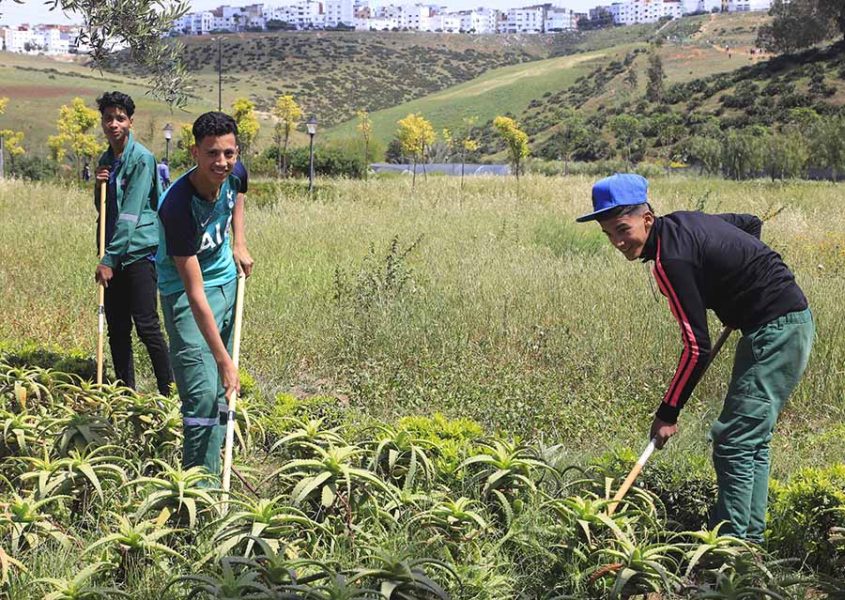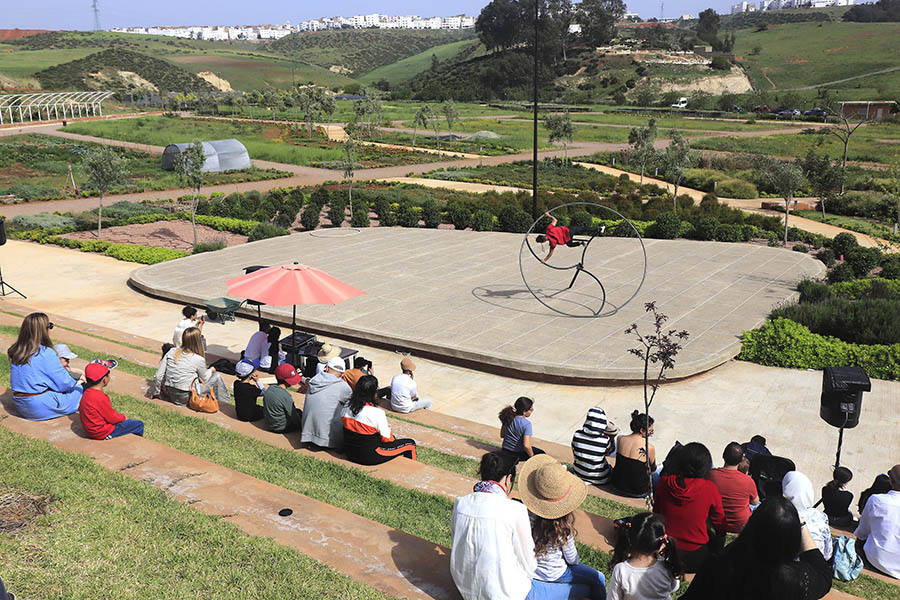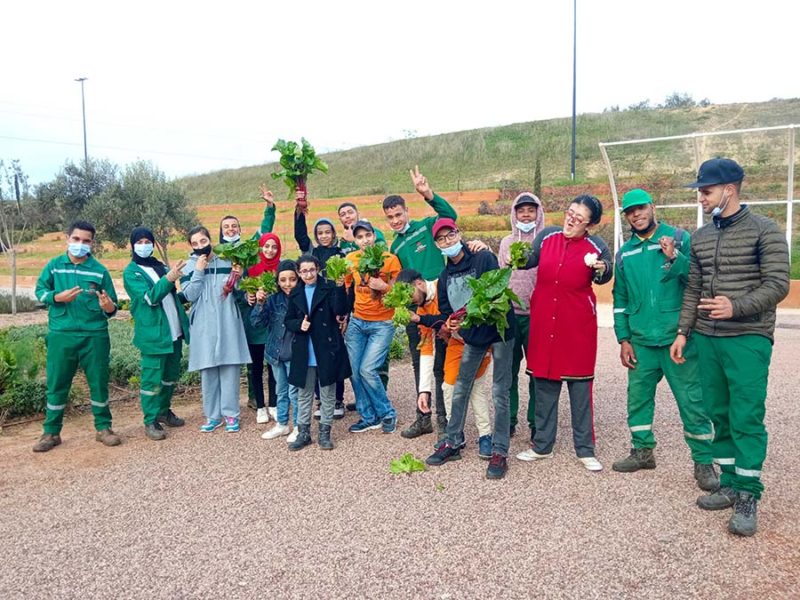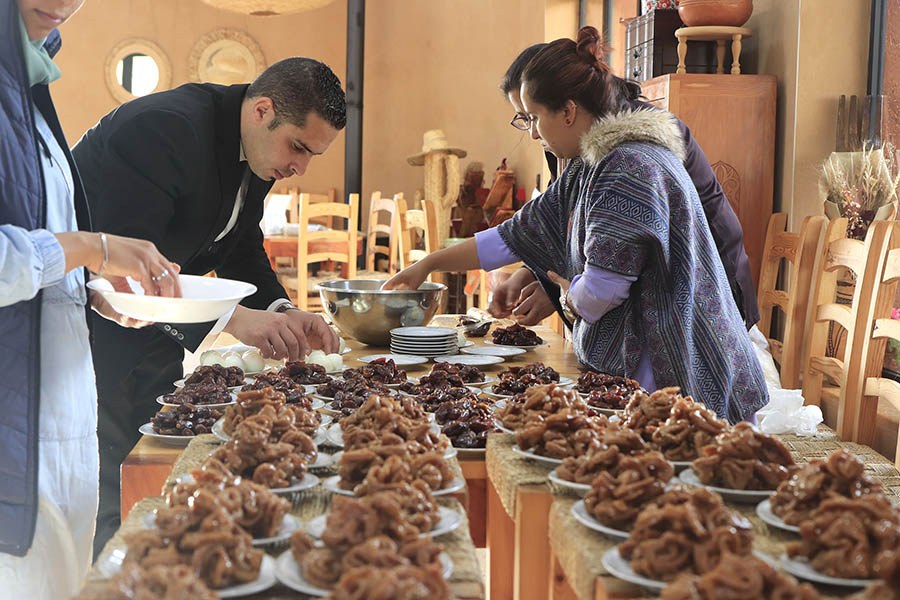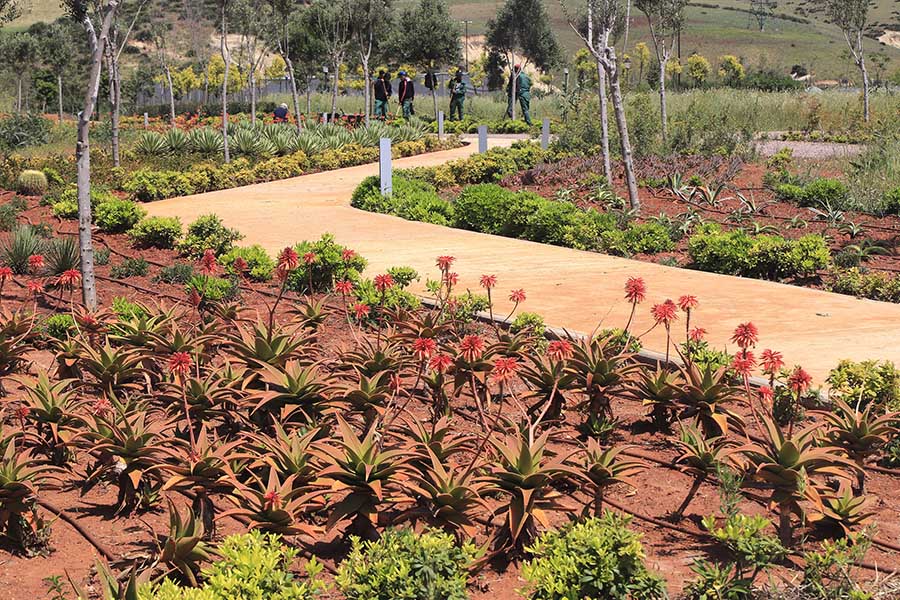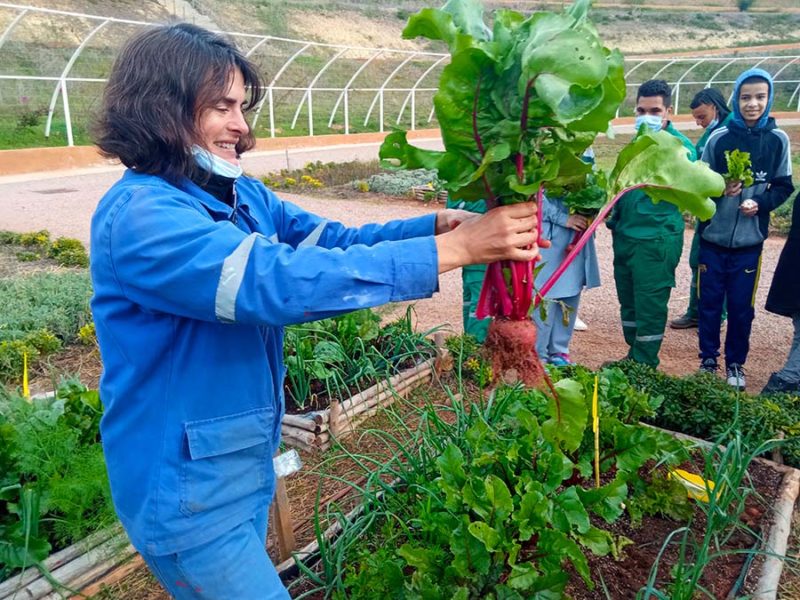The Med-O-Med gardening school in Salé, Morocco, an environmental and social project developed by FUNCI, is about to close the 2021-2022 school year. Although the effects of the pandemic have increased the economic hardship, and are very evident among the families of the young apprentices, we can say that things are progressing well.
During this academic year we have seen how the first graduating class is mostly working in a dignified and formal manner, since the demand for good gardeners is high and the boys and girls who have graduated have an excellent level of training. At the school we are committed to their full labor and social insertion and… we are succeeding! In this sense, the training provided by ANAPEC (national employment agency) is proving to be extremely useful for their immersion in the work environment.
This June, the school was also chosen as a beneficiary of the innovative state program Aurach, which will provide formal employment for 20 of its young people in the green spaces sector during the summer months.
Raising awareness activities
Throughout this semester, the awareness-raising activities have also flourished dynamically and continuously. It should not be forgotten that the project is not only a gardening school for social purposes, but also a public environmental awareness center. Conferences, round tables, workshops and school visits are increasing, and we see how, little by little, the population and even some municipal landscape technicians are becoming aware of the need for change in order to adapt to the new climatic paradigms.
Among the speakers, very well received by the public, we had the pleasure of having the Italian landscape architect Umberto Pasti and the architect and writer Salima S. El Mandjra, as well as the landscape designers, urban planners and architects Khaled Arsalan, Carey Duncan, Philippe Vidal, Mounia Bennani, Houda Manjra and Yacine Benzriouil, who made magnificent interventions, always emphasizing the need to preserve the Moroccan plant heritage and to adapt to the environmental circumstances.
Among the speakers, very well received by the public, we had the pleasure of having the Italian landscape architect Umberto Pasti and the architect and writer Salima S. El Mandjra.
Another interesting activity was organized jointly with the French Institute of Rabat as part of its “Demain dès aujourd’hui” festival. On May 14, they brought their media library – on this occasion specialized in “green” issues – to the school, and various meetings were held, including the presentation of the book “Justice climatique, urgences sociales”, published by a group of independent Moroccan journalists. Guided tours of the school’s park and nursery, as well as family workshops, provided a festive and playful touch.
The apprentices were fully integrated in all of the school’s public activities, in order to develop their personal skills and their ownership of the project, something that also stimulates them greatly.
One of the issues that have flourished, now that the world is returning to a certain “normality”, are school visits, both from public and private establishments. The Spanish School of Rabat and several French high schools have been among the most assiduous. We have made use of the skills and affection of our apprentices in the realization of some children’s workshops, and the good work of our insertion and activities agent, Meriam Ameur. We are also strengthening our ties with civil society and local associations. These include Kariat and AMSAT Morocco, for young people with disabilities, as well as Echos Belgium.
Other activities
On April 10, at the beginning of Ramadan, as usual, we organized a solidarity bazaar, with the participation of various cooperatives, associations, and small businesses. The (very hot) day was enlivened with organic vegetables and fruit, processed food products, sweets and preparations typical of this month, natural cosmetics, handicrafts and plants from the school, as well as some circus acts.
Another highlight of the month of Ramadan was the collective ftur (breaking of the fast), with all the trainees, the school staff and close friends (about 100 people!), which was generously offered by the president of FUNCI, Cherif Abderrahman Jah, who also gave some wise advice to the students, and which Azafrán, the restaurant, prepared and served with skill.
In addition, we organized several excursions, gardening services, external practices and lectures-debate, with the purpose of making the training more enjoyable, as we all know that gardening is hard work and in the school the practice takes 80% of the training course.
Among these activities, the Islamic jurist (‘adula) Nadia Cherkaoui gave three very-well-received courses in the amphitheater. The jurist, with her usual approachability, gave together with her husband, the also very learned Professor Youssef Kellam, a masterful talk on the role of women in Islam, later followed by a myriad of questions. FUNCI also gave several lectures on water in Islam and the Al-Andalus garden, much applauded by the youth, who appreciated the references to their culture.
Water
After several months of severe drought, the long-awaited and welcome spring rains finally arrived, relieving the thirst for vegetation. Even so, we are aware of the urgent need to continue searching for sustainable irrigation methods (local wells suffer from salinization and irrigation is always a bit of a headache) and to plant species resistant to climate change. In this regard, we welcome the forthcoming installation by the regional authorities of a recycled water intake to supply the 8 hectares of the park and the nursery, which is growing slowly but surely.
Thus, production is developing along its usual lines: plants to supply the school’s own garden – which is the students’ place of practice -, for occasional external services and for sale, as one of the income-generating activities. Gradually, production is focusing on ornamental, but also native and forest flora, and is one of the specialties of the training program.
In addition, the first and second-year apprentices, accompanied by their trainers, have set up the school’s vegetable garden, which is evolving and growing proudly on mandala-shaped ridges surrounded by beautiful flowers.
Step by step, chuya bchuya, as they say in Morocco, the project is bearing fruit and we are making progress in this difficult labyrinth that is the environmental improvement and access to the labor market.
Islamic Culture Foundation
This post is available in: English Español

